
Here Tom Charnock explores the development of video games made for the visually impaired, ranging from simple titles on the Nintendo Gameboy Advance, right through to modern titles available on iOS. In addition, he speaks to Tom Tworek, an accomplished muscian and sound engineer who despite being blind is incredibly passionate about video games.
The sense of sight is something many of us take for granted. Even now, as I write this I am almost oblivious to the reliance I have on my vision as I go about my daily life; and from the moment I open my eyes in the morning to the moment I finally close them again at the end of the day, very often I don't pay a second thought to how awesome and important my eyes are to me. Without my sight, I really don't know how I would be able to function in the same way I do now – not just in a professional capacity, but also when it comes to leisure activities. This is because video games are one of my favourite pastimes – playing them, arguing about them, writing about them. But what if I was visually impaired or blind? Should people with limited or no sight be excluded from universal human activities such as the playing of electronic games?
It is true that the very name 'video game' infers a visual component (coming from the Latin 'video' meaning 'to see'), but this hasn't stopped several pioneers in the field of gaming pushing the boundaries of a what a video game should be, to allow those without the ability to see to lose themselves in an adventure or engage in a test of skill. Here, T3 takes a look at some examples of video games which were designed explicitly with the visually impaired in mind.
bit Generations: Soundvoyager (Nintendo Gameboy Advance)
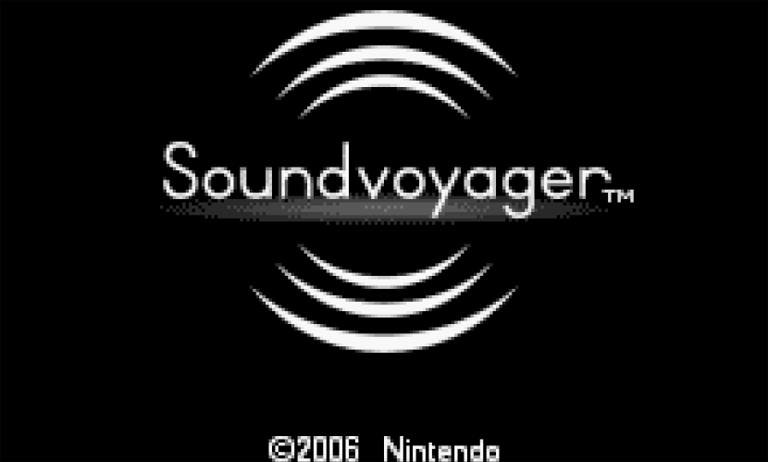
In 2006, Nintendo of Japan released the bit Generations series for the Gameboy Advance handheld. The titles that formed the bit Generations suite all featured minimalist aesthetic and promoted new and innovative gameplay practices, with perhaps the most relevant of them being Soundvoyager. A collection of mini-games using the Gameboy Advance's modest left and right audio channels, Soundvoyager was intended to be played with minimal use of the built in screen, instead requiring players to complete a series of tasks such as dodging oncoming traffic using the positional sound of vehicle engines; and finding invisible musical targets using just the beats they produced.
Real Sound: Wind of Regret (Sega Saturn / Sega Dreamcast)
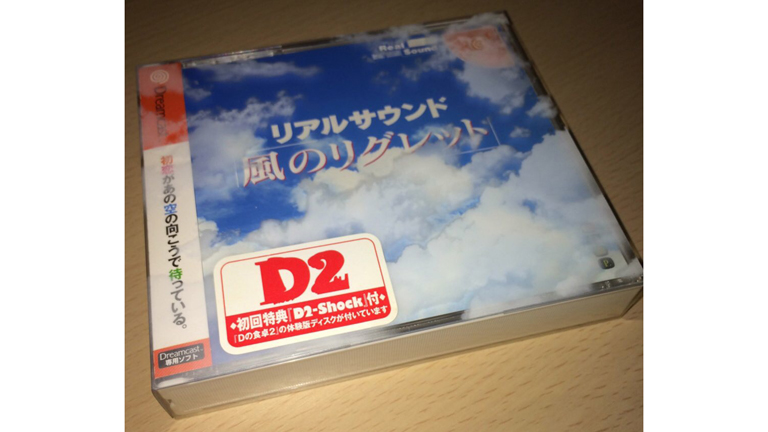
Originally developed by the late, great game designer and composer Kenji Eno for the Sega Saturn, 1997's Real Sound was later updated and released for the Sega Dreamcast console in Japan. Eno's development studio WARP was heavily invested in the use of experimental techniques when it came to game production and the earlier title D was reportedly very popular with visually impaired gamers, due to its compelling storyline and use of audio cues. Because of this popularity, the story goes that Kenji Eno was bombarded with requests to create an adventure specifically for the visually impaired, and naturally (with the assistance of Sega of Japan) he obliged. Real Sound is actually more of an audio novel than anything else, tasking players with choosing alternate paths through the main storyline with the help of chimes that dictate when the player can interact with the narrative. There is no visual aspect to either version of the game, and the collectable Dreamcast release includes a braille instruction card and – oddly – a packet of plant seeds.
Papa Sangre / Papa Sangre 2 (iOS)
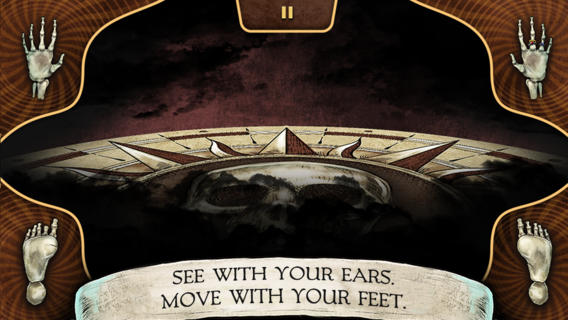
The Papa Sangre games are slightly different from the other games listed here as they are not specifically created with visually impaired gamers in mind, but conversely they are possibly the best suited to such an audience. They are by fair the most interactive and are perhaps as close to a first person adventure game that you could hope to get when employing an audio engine alone. Using an iPhone or iPad's accelerometer and binaural audio output through a set of headphones, Papa Sangre tasks the player with exploring the afterlife and collecting memories. These memories are located by physically turning around on the spot, and walking forward by tapping the device's touch screen. Tap faster and you run, but tap too fast and you'll trip over. Both games feature hazards - such as water traps - that must be avoided, but also moving enemies that will chase the player. The Papa Sangre games are very clever, very engaging…and very creepy.
The Legend of Zelda: Ocarina of Time (Nintendo 64)
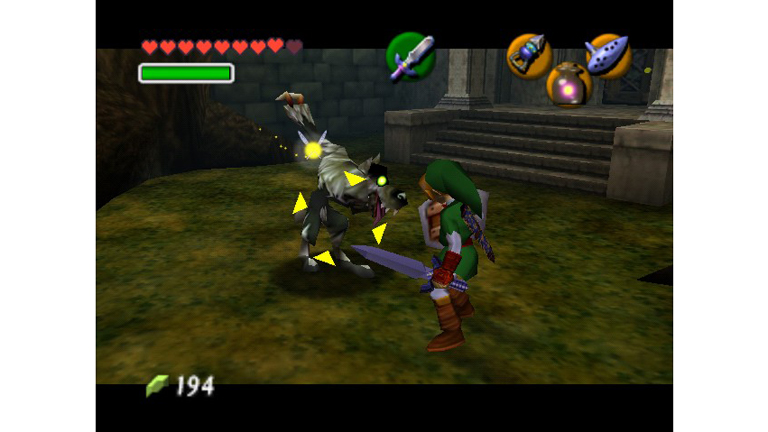
You read that right - The Legend of Zelda: Ocarina of Time, the 1998 Nintendo 64 title. While not really the type of game you would associate with total accessibility; what with its sprawling dungeons, cramped villages and wide open spaces, Nintendo's magnum opus recently grabbed headlines when it transpired that blind gamer Terry Garrett had finished the The Hero's of Time's quest after five years of trying. Using an N64 emulator, a set of speakers that split the audio into left and right channels and plenty of determination, Terry managed to free the peoples of Hyrule of Ganandorf's grip of terror. It really is an incredible feat, and for that we have nothing but admiration. For the original story head on over to Kotaku.
Sign up to the T3 newsletter for smarter living straight to your inbox
Get all the latest news, reviews, deals and buying guides on gorgeous tech, home and active products from the T3 experts
Tom Tworek interview
Tom Tworek is first and foremost a gamer, and also an accomplished musician and sound engineer. However, he is totally blind. Here T3 asks how his visual impairment affects his ability to enjoy mainstream video games.
Could you tell us a little bit about yourself?
I'm musician with around 15 years' experience. I'm mostly a drummer, singer and recently I started learning to play the harmonica. I am also a sound designer and engineer and it's been my hobby for many years. And of course, I'm also a gamer!
What is your level of visual impairment?
I'm totally blind. Well, I have a light perception in my left eye but nothing more.
When did you first get in to video games? Can you describe your first gaming experience?
I started playing games as a kid many years ago. I remember when my brother got his first consoles like the Nintendo Entertainment System or Gameboy. I was really fascinated and wanted to play and it didn't matter that it was based on trial and error due to not being able to see. I played many games or rather, I tried many games and I remember a lot. First Killer Instinct on Super NES, Street Fighter 2 and the Donkey Kong series. I remember I learned some of Donkey Kong's stages completely so I was able to complete few parts of the game. Fun times!
Accessibility is still a very minor part of mainstream gaming - what are your thoughts on this?
Games are - or should be - for everyone and shouldn't be restricted to the visuals only. Everyone can read books and no matter if it's a physical book, e-book or audiobook. Everyone can watch a movie as we have subtitles for people with a hearing problems, audio descriptions for the blind. The gaming world is getting better and better, of course, but with this kind of technology we have it still needs much more. Everyday I'm fighting to improve accessibility in games. I'm trying to contact different developers to work with them and raise awareness, but mostly without success sadly.
Can you explain how, as a visually impaired/blind gamer, you experience games intended for sighted gamers?
I think I experience video games like you or everyone else. I enjoy plot and game mechanics but from a different perspective – a sound perspective. What you can see on the screen I must hear. To be fair, my experiences with video games aren't that huge even if I've been playing games for over 20 years. The problem is accessibility. Lack of accessible titles makes me not only sad, but for example I have never experienced a strategy game, a simulation or great story-driven RPG. I always loved games like Broken Sword, Monkey Island or Dreamfall and I know I'll never be able to play these games. I'm just searching and searching. Testing more and more games to find the accessible features here or there. This is teaching me how to be happy with small, but fantastic things because I haven't really got that many choices.
What is your experience with games designed specifically for blind gamers? What is you opinion of them?
I don't really have anything positive to say. There are few brilliant shining masterpieces but most audio games I played (and I've played probably almost every single one) are just bad. From sound presentation to lack of features and content which can be comparable to actual video games. With games like A Blind Legend from French developers Dovino, or the Bokurano Daiboukenn series from Japanese developer Yukio Nozawa my hope is growing as these are examples of the best audio games I have played. A Blind Legend is short but sounds fantastic and Bokurano Daiboukenn is one of the best side scrolling action RPGs and it's something comparable to the 'Metroidvania' style games.
If you could speak directly to developers of games for visually impaired people, what kind of features would you like implemented?
It depends. Sometimes it's only implementation of something what will enable the game to speak through our screen readers like Skullgirls, the only one fully accessible fighting game on Steam. I remember how I accurately tested every build and I must say I had never been so excited. Other developers should learn from Mike Zaimont, the developer of Skullgirls. Mostly it's something really easy to implement and if more and more people can enjoy the game, why not? There are other games like adventure titles where you are controlling your character by mouse pointer. It means changing the interface to use a keyboard or gamepad. I tried to contact Telltale Games to get accessibility into their games as it could be possible without any major problems.
Sometimes adding few audio cues can change the game and can make it fully accessible if you can hear objects around you, sounds of QTE's (quick time events) or read through choices. I'd like to say to developers, you must be open for ideas and suggestions. Money is needed to eat, drink and breath but most of the time games can change drastically after few hours of coding. I believe it will move forward and games will be accessible enough for every group of people. To everyone who's blind? I'd say just be patient and search, test, search, test and so on. This is how I and others have others found many fantastic games we can play. If you find something you think is mostly accessible or can be accessible, contact the developer. More and more people should do this and fight for something we love and something for which we have the same passion as sighted gamers.
-
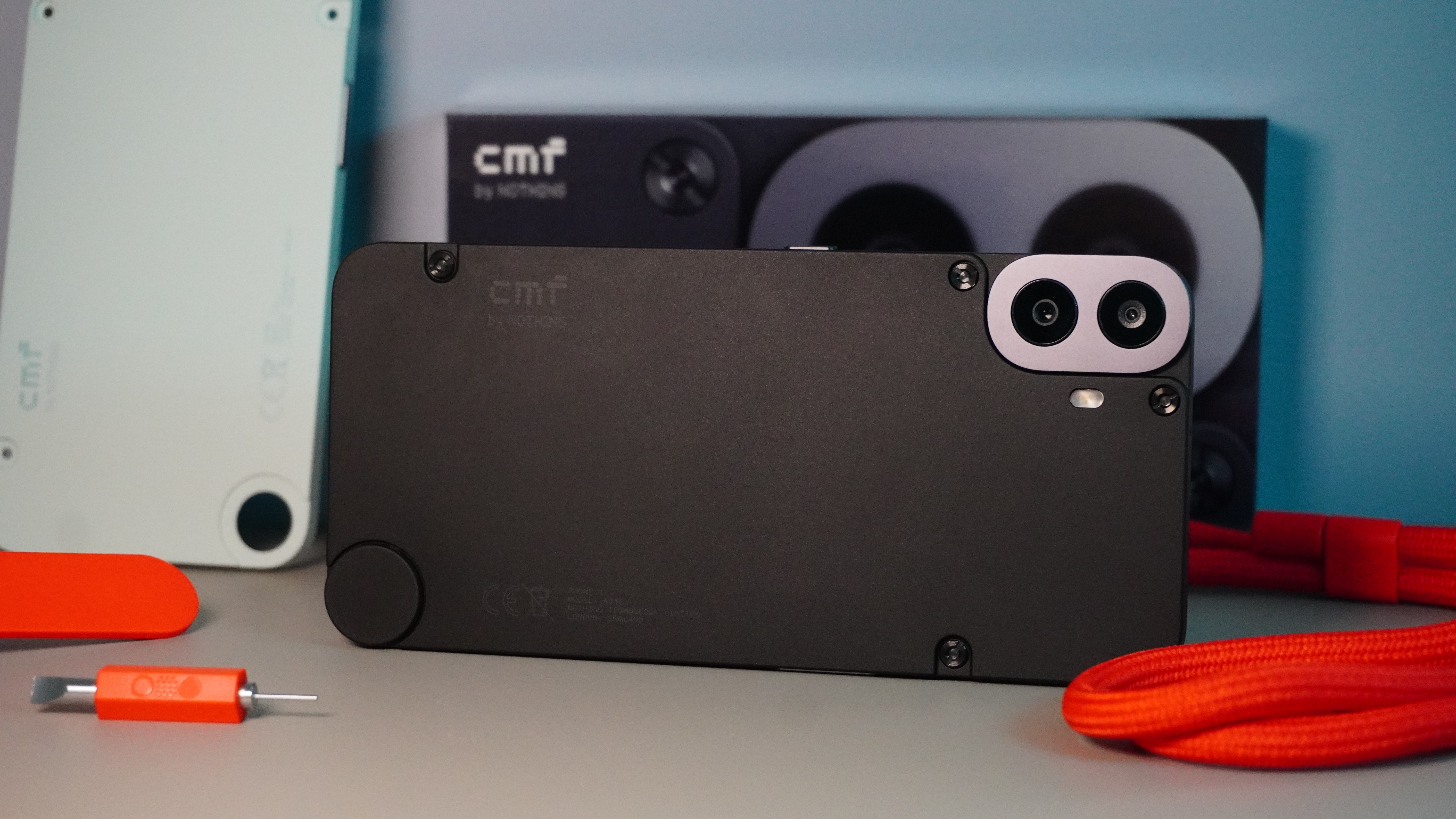 Nothing's next phone could be a budget powerhouse, thanks to this confirmed hardware detail
Nothing's next phone could be a budget powerhouse, thanks to this confirmed hardware detailOfficial details reveal more about the next phone coming from Nothing
By Chris Hall
-
 The biggest mistake you’re making when cooking Easter lamb in an air fryer
The biggest mistake you’re making when cooking Easter lamb in an air fryerCooking Easter lunch in your air fryer? Don’t make this mistake…
By Bethan Girdler-Maslen